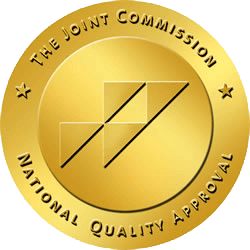According to statistics from the Pew Research Center, use of social media sites has increased by more than ten times in the past decade. Nearly two thirds of American adults use at least one social networking site, and a whopping 90 percent of young adults ages 18-29 use social media.
The Appeal of Social Media
There are dozens of social media sites, each boasting their own special features designed to create a compelling reason to jump on board. However, the major promise behind all social media remains the same: the ability to connect with the world around us. Social media networking sites make the world more open and connected, allowing users to discover what’s going on and to share and express what matters to them. The general public has definitely bought in to this appealing possibility, perhaps a little too much.
Negative Effects
The ubiquitous presence and near-continual participation by many users has led to concern about the potential negative effects. Numerous studies have been conducted to determine the impact of frequent use. The results of these studies vary, but there does seem to be some justification for the concern, especially among preteens and teenagers. Larry D. Rosen, a professor of psychology at California State University, has made the following observations about the adverse effects of social media:
- Increased narcissism. Frequent use among teens produced excessive and unhealthy self-focus.
- Increased anxiety and depression. Daily overuse negatively impacts health by making people more prone to anxiety, depression and other psychological disorders.
- Increased signs of other psychological disorders. Young adults with a strong online presence showed more signs of disorders, including antisocial behaviors, mania and aggressive tendencies.
- Diminished learning capacity. Distractions from social media negatively impact learning, often leading to lower grades.
Other negative effects have been noted, including fractured “real-life” relationships, diminished ability for independent thinking and even altered appetites and reduced self-control.
Beneficial Effects
Not every mental health expert believes social media is creating so many problems. In fact, one recent study challenges the notion that social networking is harmful and points out that online interaction can have tangible benefits. The study claimed there is no scientific explanation directly linking social media to poor mental health. Furthermore, eliminating social media is not a guarantee for improving mental health. Quite the contrary, participation in online social media has been shown to lift the mood of people who are experiencing mental health problems. Other studies note the power to increase happiness through “viral expressions” that spread online among users. Researchers suggest that positive emotional change could trigger an “epidemic of well-being” and improve mental and physical health for many. Additional evidence indicating the upside of social media is coming to light. A survey among adolescents aged 13-17 found that one in five teens felt more confident because of their use of social media. More than half said social media improved their friendships, compared to only 4 percent who said it had a negative impact on their relationships.
Tips for Healthy Use of Social Media
The specific effects of social media on our well-being remain to be seen. But since the use of social networking sites is unlikely to fade anytime soon, applying some common sense in our use of it is certainly warranted. Here are some tips to promote healthy, beneficial use of social media:
- Be positive and don’t complain. Don’t focus on everything bad that happens to you or others.
- Don’t put yourself down. Insulting yourself or calling attention to your perceived flaws only hurts your self-esteem and confidence and may lead to increased cyberbullying.
- Encourage others. Use your online power to support and uplift others. Helping them feel better about themselves will also give you a boost.
- Don’t compare. Guard against getting caught up in comparing yourself to others. Let your comments, photos and more speak for themselves and show how special you are.
- Support good causes. Use social accounts to promote worthy organizations and beneficial goals that will build up your community.
- Take a break. Too much of anything is unhealthy. Put away your phone or log off your computer now and then, so you can enjoy other things in life.
Curious to learn more about teenage mental health and addiction in teens? Check out our blog to learn more now or call us at 877-466-0620.


